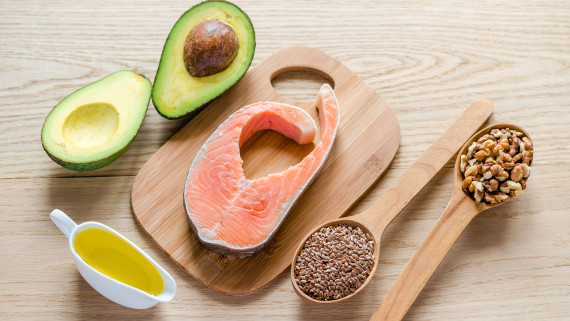How an Anti-Inflammatory Diet can Improve your Health

Chronic inflammation started becoming a buzzword as the cause for many serious illnesses, from heart disease to cancer. According to the National Institutes of Health there is direct connection between long-term inflammation and the development of dysplasia, which leads to cancer. There are many factors that can contribute to chronic inflammation including stress, toxins, genetic predisposition, lack of exercise and diet.
Many people choose to take a daily anti-inflammatory medicine (NSAIDS) to reduce their chances of chronic long-term inflammation and according to The Mayo Clinic research is being conducted on their use for preventing cancer. The problem is that that may be causing more harm than good. Some common side effects include constipation, heartburn and headaches. Research in the US National Library of Medicine also found NSAID complications to include ulcers, bleeding and perforation in the stomach, esophagus and duodenum. A much safer way to reduce the likelihood of chronic inflammation is to avoid foods that may lead to inflammation and to eat a diet rich in anti-inflammatory foods.
The University of Massachusetts Medical School states that C-reactive protein produced by the body is increased when inflammation is present. Including foods that can help keep this number from rising may help in the long run. A 2005 study done on dietary magnesium and C-Reactive Protein found that intakes below the recommended daily allowance of magnesium may lead to elevated CRP; and unfortunately most Americans consume magnesium at levels well below what is recommended.
Magnesium is responsible for many important bodily functions and simply upping magnesium intake may correct a number of health concerns. Some typical symptoms of deficiency include: weakness, muscle cramps, nausea, anxiety, poor memory, fatigue and dizziness among others. Although it’s almost impossible to overdose through supplementation it is just as easy to increase intake through magnesium rich foods. According to the U.S Department of Health and Human Services some of the best high-magnesium choices include almonds, spinach, cashews and black beans. Oysters, blackstrap molasses, kelp and pumpkin seeds are also great choices to add into the diet.
 Omega-3 fatty acids, also known as essential fatty acids, also play a major role in reducing inflammation and the risk of chronic diseases including cancer. The University of Maryland Medical Center states that average American diet contains more than 14 times more omega-6 fatty acids, which promotes inflammation when consumed at such high levels. Following a Mediterranean diet rich in Omega-3 fatty acids can help re-balance the ratio and reduce chronic inflammation. Wild fatty fish such as salmon, herring and sardines are some of the best sources and should be eaten about twice per week. Pastured eggs and grass-fed beef are also less recognized but fantastic sources of omega-3s. While some believe that animal sources are more easily used by the body vegan sources include freshly ground flax seeds, unheated flax oil, walnuts, chia seeds and seaweed.
Omega-3 fatty acids, also known as essential fatty acids, also play a major role in reducing inflammation and the risk of chronic diseases including cancer. The University of Maryland Medical Center states that average American diet contains more than 14 times more omega-6 fatty acids, which promotes inflammation when consumed at such high levels. Following a Mediterranean diet rich in Omega-3 fatty acids can help re-balance the ratio and reduce chronic inflammation. Wild fatty fish such as salmon, herring and sardines are some of the best sources and should be eaten about twice per week. Pastured eggs and grass-fed beef are also less recognized but fantastic sources of omega-3s. While some believe that animal sources are more easily used by the body vegan sources include freshly ground flax seeds, unheated flax oil, walnuts, chia seeds and seaweed.
Besides adding these anti-inflammatory foods to your diet avoid as many pro-inflammatory foods as possible. Eliminate foods that are high in sugar and avoid toxins and pesticides both in foods and everyday products and instead opt for organic or toxin free alternatives. Managing your blood sugar by avoiding high glycemic foods, such as refined carbohydrates and highly processed foods, and getting adequate amounts of protein with each meal will also help prevent chronic inflammation.










